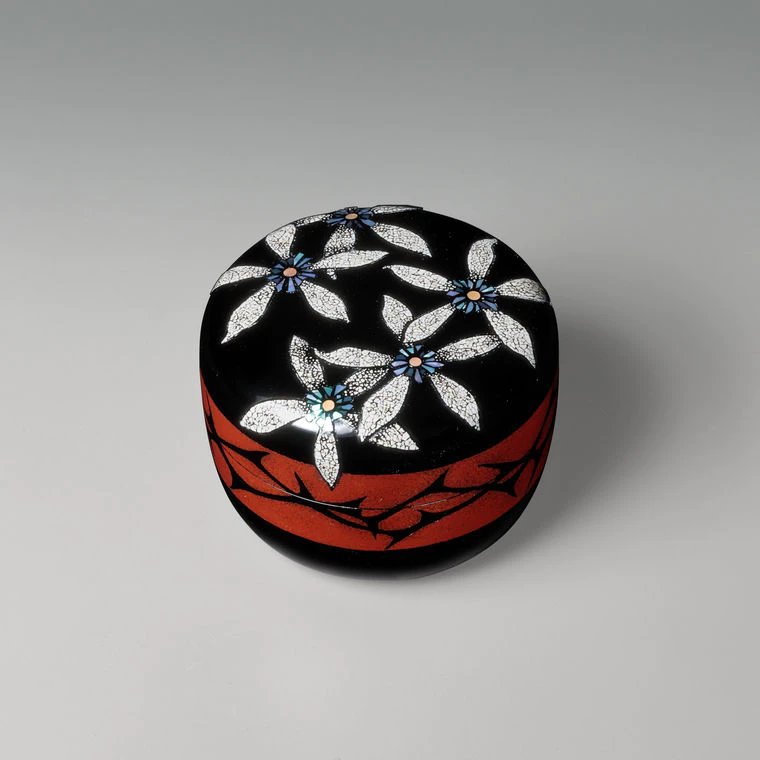Tea Container with Trifoliate Orange Design in Makie
H 6.0 x W 8.5 x D 8.5 cm- according to today's currency rate
- shipping fees not included
Michiko Kaseyama
1950 -- Lacquerware
- Awarded 7 times at the Japan Kōgei Assoc. Exhibition
- Price Range Please Inquire
Description
-
CategoryLacquerware
-
MaterialsGreat green turban shell, Egg shell, Gold powder
-
DimensionsH 6.0 x W 8.5 x D 8.5 cm
-
Paulownia BoxIncluded
Techniques Used
Maki-e
Maki-e (literally “sprinkled pictures”) is a representative lacquerware technique that originated in Japan around 1,200 years ago. Maki-e is done by painting lacquer motifs on the surface of a piece using a fine brush and then sprinkling gold powder onto the lacquer before it hardens, producing luxurious decorations.
Eggshell inlay
Eggshell inlays (rankaku) are created by applying finely crushed eggshells to painted lacquer motifs. The eggshells make it possible to create vivid whites, a color that is difficult to reproduce with colored lacquer. Normally, the shells of quail eggs are used.

